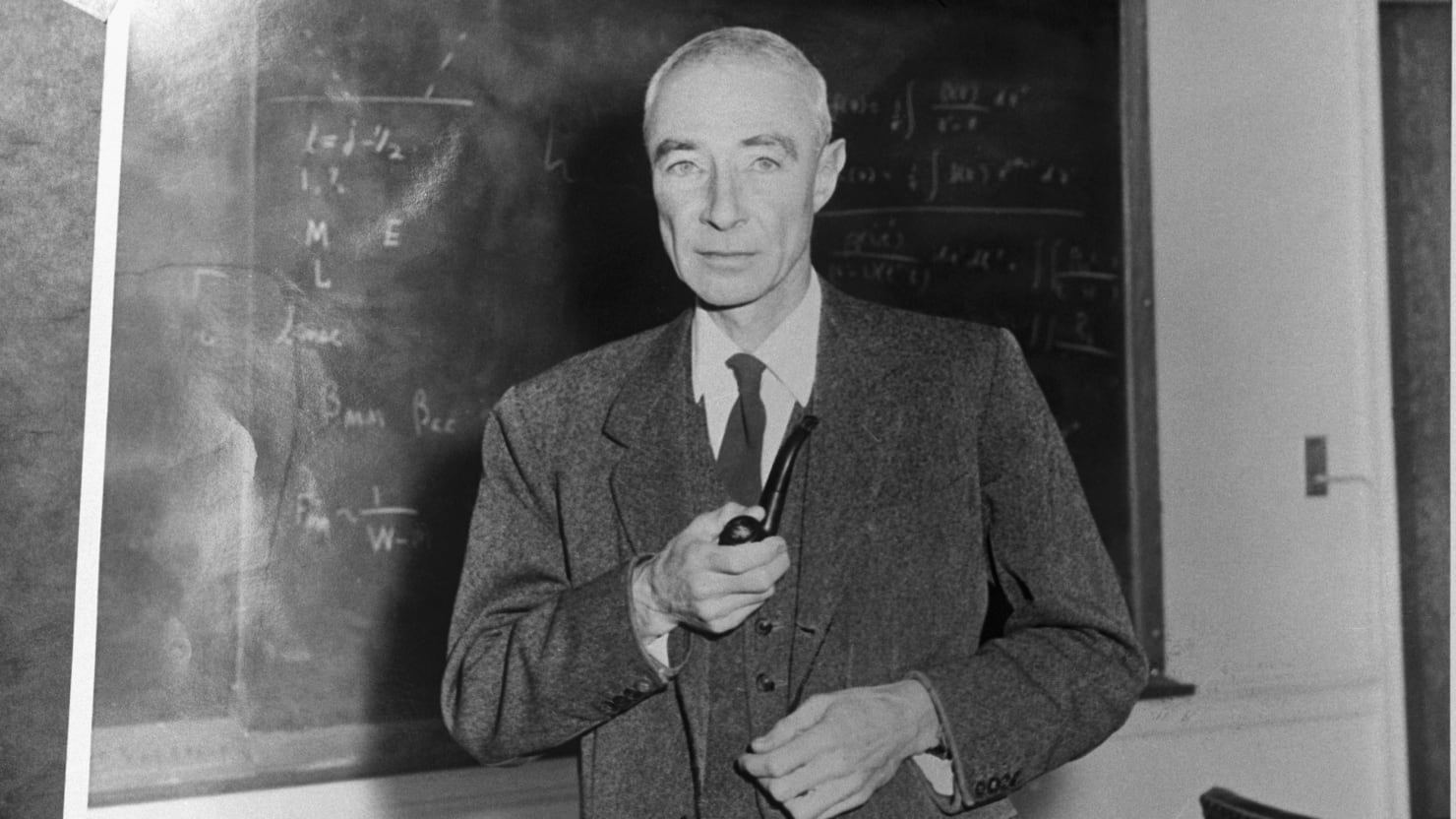According to a December 16 article in the New York Times, Manhattan Project physicist J. Robert Oppenheimer has finally received some form of justice just in time for Christmas, nearly 70 years after having his security clearance revoked by the Atomic Energy Commission (AEC) because he was thought to be a Soviet spy. The controversial judgment that severely damaged the late physicist’s reputation was overturned by US Secretary of Energy Jennifer M. Granholm, who claimed that it was the outcome of a “flawed procedure” that went against the AEC’s rules.
According to Stevens Institute of Technology science historian Alex Wellerstein, the exoneration was long overdue. But, he added, “I’m sure it doesn’t go as far as Oppenheimer and his family would have wanted.” Further, he said, “But it goes pretty far. The injustice done to Oppenheimer doesn’t get undone by this. But it’s nice to see some response and reconciliation, even decades too late.”
Oppenheimer studied physics at Cambridge
Born to German Jewish immigrants in New York City, Oppenheimer studied physics at Cambridge under Ernest Rutherford before receiving his Ph.D. from the University of Gottingen in 1927 under Max Born. He subsequently became a member of the Berkeley campus of the University of California faculty. Major General Leslie R. Groves, appointed by President Franklin D. Roosevelt to supervise the Manhattan Project, chose Robert Oppenheimer to be in charge of the secret weapons facility in Los Alamos, New Mexico.
And the endeavor was a success. On July 16, 1945, just before dawn, a prototype nuclear bomb known as “Gadget” was raised to the top of a 100-foot tower and set off in the remote Alamogordo Bombing Range in the Central New Mexico desert. The explosion obliterated the steel tower, which also caused a mushroom cloud to rise more than 38,000 feet. The intensity of the explosion melted the sand around the tower, creating trinitite, a glassy crust now known to be moderately radioactive. 120 miles distant, the shock wave was strong enough to shatter windows.
Later, Oppenheimer remembered that it made him think of the Bhagavad Gita’s famous line, “Now I become Death, destroyer of worlds.”
Robert Oppenheimer had several Communist associates
On August 6, 1945, a fission bomb called “Little Boy” was detonated by a gun and killed between 70,000 and 130,000 people in Hiroshima. The so-called Trinity Test’s consequences became all too evident. A further 45,000 people died when the “Fat Man,” which caused an implosion, was dropped on Nagasaki three days later. Yet, despite terrible costs, the United States won the war.
Oppenheimer had several Communist associates going back to the 1930s—his mistress Jean Tatlock, who took her own life in January 1944—and even under duress, accused some of his colleagues of being Soviet operatives in a 1942 investigation. Later, he acknowledged that his evidence was “a tissue of lies.” In actuality, Oppenheimer was the only person Berkeley professor of French literature Haakon Chevalier had contacted during a private dinner at Oppenheimer’s home.
Oppenheimer’s security clearance was revoked
The only member of the AEC to express opposition was Commissioner Henry DeWolf Smyth. Smyth concluded that Robert Oppenheimer had never revealed any classified information while being under continual observation for almost 11 years. Professor of physics at Princeton University Smyth believed that the accusations against Oppenheimer. It had been strengthened by “enthusiastic amateur help from powerful personal enemies.” Moreover came to a conclusion that, rather than being a Communist subversive, the physicist was “an able, imaginative human being with normal human weaknesses and failings.” Nevertheless, the Federation of American Scientists protested the AEC’s decision alongside Einstein and 25 of his Princeton colleagues.
Oppenheimer’s security clearance was revoked, and science historians have long maintained that this decision should be overturned. However, several transcripts from the 1954 hearings were declassified in 2014, showing no incriminating information on the late physicist. Instead, the evidence inclined to clear him. Richard Polenberg, a historian at Cornell University. He said at the time, “it’s hard to see a principle here—except that some of the testimony was sympathetic to Oppenheimer, some of it very sympathetic.”












